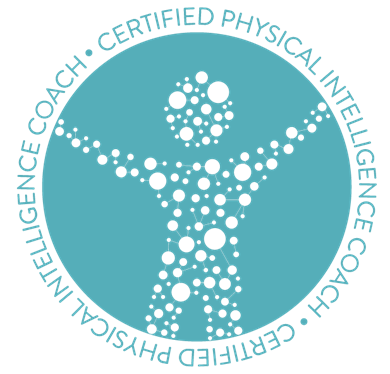PERFORMANCE COACH
Helping female educators who are grappling with overwhelming pressures to thrive
Helping teachers and educators who are struggling with stress, burnout, or overwhelm, to find clarity of purpose and show up as their best versions, and feel energised to perform at their full potential.

Pathway to Serenity
Traverse the journey from stress and burnout to tranquillity and empowerment. An immersive experience designed to help you regain control, anchoring stability and balance in personal and professional life.

Unveil the Visionary
Thrive in clarity and purpose as you identify and align with your core values and strengths. This part of the journey assists in visualising and setting clear, actionable goals, allowing you to show up purposefully in every sphere of life.

Radiate Confidence
A transformative step that focuses on boosting your self-belief and resilience. This offering harnesses your inner strength, encouraging you to step into your power and shine with confidence in your professional role.


About Me
Meherun Hamid, a certified performance coach and a Drawing & Talking Practitioner, specialises in empowering women across the education sector. Her mission revolves around guiding these women towards paths of success, mediating the unique challenges they face with her thorough understanding and compassion. Having served as a headteacher in London for over a decade, Meherun's expertise is enriched with practical experiences and an empathetic, strategic approach towards coaching. Her key offerings—Programme for Well-Being of Thriving Leaders and Empowerment and Transformation—aim to equip school leaders and teachers with the mindset and tools to prevent burnout and improve career satisfaction. As the architect of numerous successful transformations, Meherun opens the doors to confidence, resilience, and achievement, helping educators unlock their potential and become the accomplished leaders they aspire to be.
The age of 40 was a pivotal point in my life where I found myself in a dark place. Each day seemed like an uphill battle, and I could barely muster the strength to get out of bed. Fatigue consumed me, and my productivity plummeted. Hair loss became a frightening reality, and even the simplest tasks felt like monumental challenges. My body was sending me distress signals, and I knew something had to change. That's when I sought medical help and received a shocking diagnosis: hypothyroidism. The news was devastating, but it also became a turning point in my life. Determined to take control of my health, I embarked on a transformational journey that would change my life forever.
Collaborated with



Blog

Mastering The Balancing Act: 6 Ways To Nurture Your Well-Being While Educating The World
In the noble pursuit of educating others, it's easy to lose sight of our own well-being. Whether you're a teacher, a mentor, or simply someone sharing knowledge with the world, striking a balance between giving to others and caring for yourself is essential.
In this blog, we'll explore six practical ways to nurture your well-being while continuing to educate and empower those around you.
The Importance Of Teacher Well-Being In Education
The importance of teacher well-being in education cannot be overstated. Educators play a critical role in shaping the lives of their students, and their well-being directly impacts the quality of education they provide.
When teachers prioritise their own well-being, they are better equipped to create positive learning environments, build strong relationships with students, and effectively manage classroom challenges.
Moreover, teacher well-being influences student outcomes and academic achievement. Research has shown that students perform better academically when they are taught by educators who are emotionally healthy and engaged in their work.
Juggling Personal Well-Being And Educational Responsibilities
Juggling personal well-being and educational responsibilities can often feel like walking a tightrope without a safety net. As educators, our passion for teaching and guiding others is boundless, but it's easy to forget about our own needs in the process.
The demands of lesson planning, grading, meetings, and extra-curricular activities can quickly consume our time and energy, leaving little room for self-care. However, neglecting our well-being ultimately impacts our ability to effectively educate and support our students.
Finding balance between our professional duties and personal wellness is essential for long-term success and fulfilment in our roles as educators. It requires intentional effort and a commitment to prioritising our own health and happiness alongside our dedication to the growth and development of others.
Strategies For Self-Care And Fulfilment In Teaching
In the demanding field of education, prioritising self-care and finding fulfilment in teaching are essential for maintaining well-being and sustaining passion for the profession. Educators often find themselves juggling multiple responsibilities, from lesson planning and grading to supporting students' social and emotional needs.
1. Cultivate Positive Relationships:
Cultivating positive relationships is vital for educators to thrive in their profession. It involves fostering supportive connections with colleagues, students, and parents, creating a sense of community and mutual respect.
Additionally, surrounding oneself with positive influences and limiting exposure to negativity can help maintain a healthy mindset, promoting a supportive and uplifting environment for all involved in the educational community.
2. Set Realistic Expectations:
Setting realistic expectations is essential for educators to maintain their well-being and effectiveness in the classroom. It involves recognizing that perfection is not attainable and embracing the concept of progress over perfection. By setting achievable goals for themselves and their students, educators can avoid unnecessary stress and frustration.
Moreover, focusing on progress and growth allows educators to celebrate incremental improvements and learning opportunities, fostering a positive and encouraging learning environment. Practising self-compassion and forgiveness when things don't go as planned is also crucial, as it encourages resilience and a healthy perspective on setbacks.
3. Establish Rituals and Routines:
Establishing rituals and routines is a key strategy for educators to maintain consistency and balance in their lives. By creating daily or weekly rituals, such as a morning meditation or an evening walk, educators can prioritise self-care and set a positive tone for the day.
These rituals help cultivate a sense of structure and stability, making it easier to navigate the demands of the teaching profession. In addition to personal rituals, educators can establish routines for professional tasks, such as lesson planning, grading, and classroom management.
4. Embrace Flexibility:
Embracing flexibility is essential for educators to navigate the ever-changing landscape of education. In the fast-paced world of teaching, unexpected challenges and opportunities often arise, requiring educators to adapt their plans and approaches.
By embracing flexibility, educators can respond to changing circumstances with resilience and creativity, turning obstacles into opportunities for growth. Flexibility also fosters a culture of innovation and openness to new ideas in the classroom.
5. Practice Mindfulness:
Practising mindfulness is a valuable tool for educators to manage stress and enhance well-being in the classroom. Mindfulness involves being fully present in the moment, without judgement or distraction. By incorporating mindfulness techniques into their daily routines, educators can reduce stress, increase focus, and cultivate a sense of calm amidst the chaos of the school day.
One way educators can practise mindfulness is by incorporating simple breathing exercises or meditation techniques into their daily routine. Taking a few deep breaths before a class or during a stressful situation can help educators centre themselves and approach challenges with clarity and composure.
6. Find Meaning and Purpose:
Finding meaning and purpose is essential for educators to sustain their passion and commitment to teaching. It involves reflecting on what inspires and drives them in their profession, beyond the day-to-day tasks and challenges. By connecting with their own sense of purpose, educators can find fulfilment in making a positive impact on the lives of their students and communities.
One way educators can find meaning and purpose is by focusing on the growth and success of their students. Witnessing the progress and achievements of students can be incredibly rewarding and reaffirming, reminding educators of the importance of their work.
Conclusion
Mastering the balancing act between nurturing your own well-being and educating others is a continual journey, not a destination. By setting boundaries, practising self-care, seeking support, embracing flexibility, practising mindfulness, and finding meaning and purpose, you can cultivate a sustainable approach to both your personal and professional life.
Remember, taking care of yourself is not selfish – it's essential for being the best educator you can be.
FAQs
1. How can I prioritize self-care when I have a busy schedule?
Prioritizing self-care requires intentionality and commitment, even in the midst of a busy schedule. Start by identifying small pockets of time throughout your day where you can engage in activities that recharge you, whether it's taking a short walk, practicing deep breathing exercises, or enjoying a quick mindfulness meditation session.
2. I often feel guilty when I take time for myself. How can I overcome this guilt?
Guilt is a common emotion, especially for those in caregiving professions like education. However, it's important to recognize that taking care of yourself is not only beneficial for you but also for those you serve.
3. What can I do if I'm feeling burned out or overwhelmed by my role as an educator?
If you're feeling burned out or overwhelmed as an educator, it's important to prioritize self-care and seek support from colleagues, friends, or professionals. Take breaks, practice stress-reducing activities, and consider discussing your feelings with a mentor or counselor for guidance and support.

The Extra Mile: How to unlock your highest potential
Unlock the secret to better digestive health with 'Gut Feeling.' Discover how to nourish your gut and improve your overall well-being. ... more
mind and body
08 April 2024 • 7 min read

The Extra Mile: How to unlock your highest potential
Unlock the secret to better digestive health with 'Gut Feeling.' Discover how to nourish your gut and improve your overall well-being. ... more
mind and body
08 April 2024 • 7 min read
Unleash Inner Strength
A programme for those in the teaching realm feeling swamped and disoriented by relentless pressures
Rediscover autonomy, visualise purpose, and radiate radiant self-assured power.
